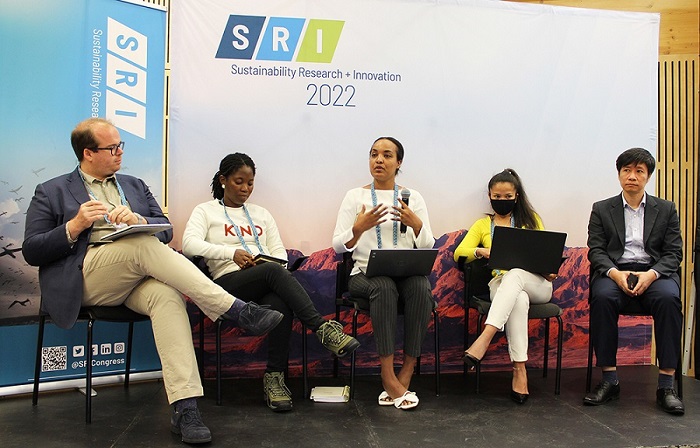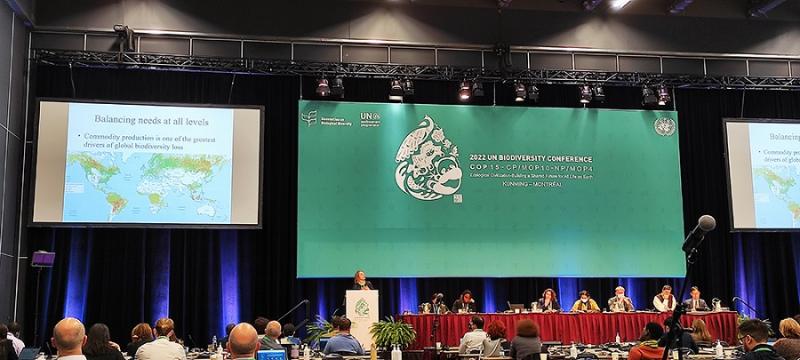
Outcomes from UNCOP15 and GDN’s attendance
The Parties to the Convention on Biological Diversity (UN CBD) concluded the negotiations for a post-2020 Global Biodiversity Framework during COP15. The framework includes a commitment from the world to take action by 2030 to halt and reverse biodiversity loss, with a vision of living in harmony with nature by 2050. The conference took place from December 7-19, 2022, in Canada, with representatives of 188 governments participating in marathon meetings that were able to finalize and approve holistic strategies for reducing the impacts of climate change and safeguarding the environment as a whole.
GDN at COP15

GDN attended the conference aiming to engage with different actors interested in exploring the role of research in implementing the framework, with a focus on the niche occupied by social sciences in low- and middle-income countries (LMICs).
GDN advocates for an imperative need to augment the number of social scientists dedicated to the study of biodiversity and its link to development, with a particular emphasis on the Global South. Leveraging our extensive network and 20-year relevant experience, GDN is capable of generating prospects for researchers located in low- and middle-income countries to tackle biodiversity challenges in a globally interconnected way.
Sustainability Research and Innovation (SRI) Congress

As part of the official program of the SRI Congress, GDN organized a public panel titled ‘Engaging Policy in Biodiversity Mainstreaming Research’. The hybrid event brought together all GDN grant recipients to engage in dialogue with Deshni Pillay, Senior Director at the South African National Biodiversity Institute (SANBI). The conference afforded grantees the opportunity to present their research projects to a relevant global audience of sustainability and development research leaders, government and civil society experts, funders, and innovators, and to network with other scholars.
During the lively discussion, grantees shared their experiences working on their research projects, focusing on the primary drivers of their research, their comprehension of biodiversity mainstreaming, and their efforts to engage with key stakeholders, particularly policy practitioners. SANBI shared a range of approaches to biodiversity mainstreaming, concentrating on Sub-Saharan Africa. A GDN-moderated open discussion led to a deeper understanding of "success" in research-policy engagement in the context of biodiversity mainstreaming research.
Read more on Biodiversity and Development
- Nature-related financial risks in Brazil may be material
- ‘Living laboratories’: an integrated approach to development goals
- Financing conservation: making the business case for protected areas
- Flood warning: urgent action needed on three continents
- Integrating ecosystem services into land, water and urban management
Write for the GlobalDev blog on biodiversity and development, climate change, natural resource management and related issues.





